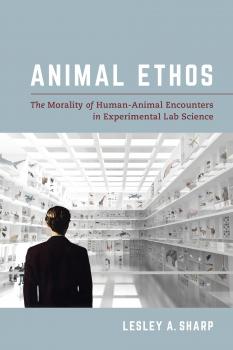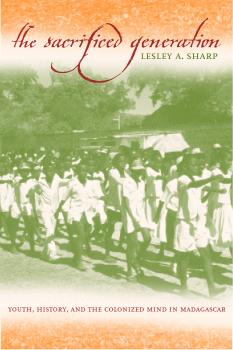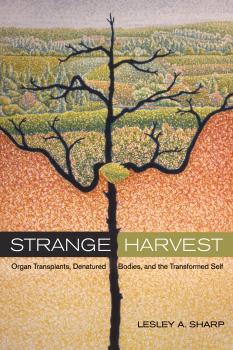ТОП просматриваемых книг сайта:
Lesley A. Sharp
Список книг автора Lesley A. SharpАннотация
In <i>The Transplant Imaginary</i>, author Lesley Sharp explores the extraordinarily surgically successful realm of organ transplantation, which is plagued worldwide by the scarcity of donated human parts, a quandary that generates ongoing debates over the marketing of organs as patients die waiting for replacements. These widespread anxieties within and beyond medicine over organ scarcity inspire seemingly futuristic trajectories in other fields. Especially prominent, longstanding, and promising domains include xenotransplantation, or efforts to cull fleshy organs from animals for human use, and bioengineering, a field peopled with «tinkerers» intent on designing implantable mechanical devices, where the heart is of special interest.<br> <br> Scarcity, suffering, and sacrifice are pervasive and, seemingly, inescapable themes that frame the transplant imaginary. Xenotransplant experts and bioengineers at work in labs in five Anglophone countries share a marked determination to eliminate scarcity and human suffering, certain that their efforts might one day altogether eliminate any need for parts of human origin. A premise that drives Sharp’s compelling ethnographic project is that high-stakes experimentation inspires moral thinking, informing scientists’ determination to redirect the surgical trajectory of transplantation and, ultimately, alter the integrity of the human form.<br>
Аннотация
What kinds of moral challenges arise from encounters between species in laboratory science? <I>Animal Ethos</I> draws on ethnographic engagement with academic labs in which experimental research involving nonhuman species provokes difficult questions involving life and death, scientific progress, and other competing quandaries. Whereas much has been written on core bioethical values that inform regulated behavior in labs, Lesley A. Sharp reveals the importance of attending to lab personnel’s quotidian and unscripted responses to animals. <I>Animal Ethos </I>exposes the rich—yet poorly understood—moral dimensions of daily lab life, where serendipitous, creative, and unorthodox responses are evidence of concerted efforts by researchers, animal technicians, veterinarians, and animal activists to transform animal laboratories into moral scientific worlds.
Аннотация
Аннотация
Strange Harvest illuminates the wondrous yet disquieting medical realm of organ transplantation by drawing on the voices of those most deeply involved: transplant recipients, clinical specialists, and the surviving kin of deceased organ donors. In this rich and deeply engaging ethnographic study, anthropologist Lesley Sharp explores how these parties think about death, loss, and mourning, especially in light of medical taboos surrounding donor anonymity. As Sharp argues, new forms of embodied intimacy arise in response, and the riveting insights gleaned from her interviews, observations, and descriptions of donor memorials and other transplant events expose how patients and donor families make sense of the transfer of body parts from the dead to the living. For instance, all must grapple with complex yet contradictory clinical assertions of death as easily detectable and absolute; nevertheless, transplants are regularly celebrated as forms of rebirth, and donors as living on in others' bodies. New forms of sociality arise, too: recipients and donors' relatives may defy sanctions against communication, and through personal encounters strangers are transformed into kin. Sharp also considers current experimental research efforts to develop alternative sources for human parts, with prototypes ranging from genetically altered animals to sophisticated mechanical devices. These future trajectories generate intriguing responses among both scientists and transplant recipients as they consider how such alternatives might reshape established—yet unusual—forms of embodied intimacy.




